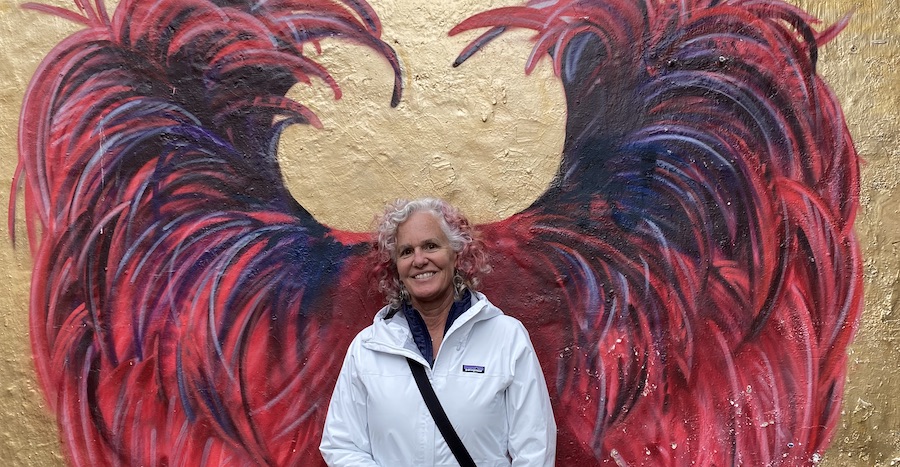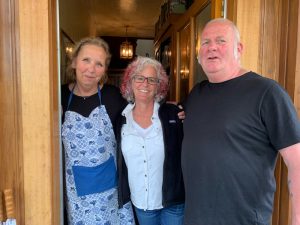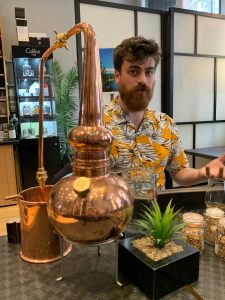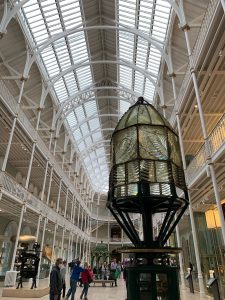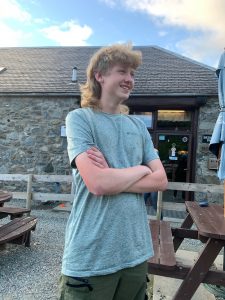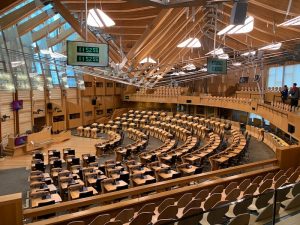I’ve been blessed to have been able to travel fairly widely in this life, and nothing makes me feel more alive than being outside my own geographical bubble. But I’ve always avoided the UK. Not for any rational or clear reason, but from some…what should I call it? Superstition? Gut-resistance? Just a vague but fundamental leeriness I’ve felt in my bones. I lived in Spain for nearly a year in college and, unlike all my friends, never went to England. In more recent travels, I’ve avoided even transferring flights there. Just kind of flinchy about it. But when I did my 23&Me analysis a couple years ago, a little light went on in my brain about why this might be.
Turns out, I am, for real, about as genetically-sourced from the UK as a person can get. I’m so Anglo, and/or Scotch-Irish, or whatever kind of whitebread mutt (last name: Wadsworth, come on) that, especially as a person who aims to be a race traitor politically and professionally, it’s embarrassing. My genetic profile came back with less than 4% that wasn’t from the British Isles, and that tiny slice of not-British was Scandinavian. So maybe I’ve skirted the UK all my life because of some seriously cellular past-life shit. Words like “indentured servitude,” “witch,” and “faggot” come to mind, if I’m honest. Cold bones and starvation and fire; moldy ships and hard labor. (Not sure why I picture my ancestors lower-class or outcast, but I do, and the OG Wadsworth did indeed come over on one of the first ships to the colonies, at least according to the research my late Aunt Wilma Wadsworth did for her Daughters of the American Revolution membership, I shit you not.) I can feel the flames lapping at my toes.
So it was that I had to push past a psychological wall to agree to two weeks in Scotland. I felt like the awkward high school kid who didn’t want to come back for the reunion. Fortunately, we weren’t going to actual England, and it’s the year of our lord twenty twenty two, and I knew I could hop on an aeroplane home if I really got the heebie jeebies.
And, lo, what a nice surprise it has been to be in Scotland and meet real-life, twenty-first century Scots. And to leave feeling not quite as squeaky about my genetic inheritance. Or at least, even if I can’t sort out which genetic parts of me belong to which places in the UK, I can at least align conceptually with Scots. Because Scotland is a grand, glorious, moody landscape with mountains and lakes that stir the heart, and its native sons, daughters, and niblings are irreverent, passionate, crusty fighters with a yearning for justice, and a right wicked sense of humor. If England bears the mildly put-out demeanor of a once-hegemon, Scotland sports the scars of the scrappy underdog — and I dig it.
To a person, every Scot we met–and, indeed, every immigrant worker now aligned with the place for school or work or a better life–was warm, kind, funny, and clever, and went out of their way to be of help. The two AirBnb hosts whose flats provided the homey bookends of our trip in Glasgow and Edinburgh were two of the most hospitable I’ve ever had the pleasure to communicate with. The neurodivergent, kilted gentleman and his sweet border collie at the cafe in Glasgow, who told us all about the Highlands we were set to visit; the kind bartender in the West End pub who made single-malt recommendations for us on our second night; the villagers at every inn we stayed at, complaining of our blisters and bruised feet, who were generous with their Scottish salmon and farm-fresh eggs; Ewan, the insanely gregarious, mullet-sporting 17-year-old backpacking the West Highland Way all by himself (but charming the pants off everyone); the senior citizens who regularly smoked us on the hikes but still offered encouraging words; the young, bearded, fast-talking autodidact professor of whisky tasting — just everyone has been exceptionally convivial and salty and warm. On top of all this, the people of Scotland felt familiar to me; they actually kind of, in a hey-I-remember-you way felt like — dare I say it — my people. And the stories they told were the stories of resilient, feisty underdogs; the stories of hearty, earthy, stalwart Scots.
Yes, the Scots-Irish would come in their scrappy lots to the U.S., and go on to contribute in myriad ways, some of them atrocious. They would fight their way into whiteness, the hegemonic category — the ubiquitous toxic lie — of belonging. They would lead some of the worst massacres of Indians, and produce Andrew Jackson, to claim land through theft and bloodletting. They would cling to the birthright of race and masculinity and status they lacked in the old world. But they would also contribute mightily to Scots and American and world literature (Stevenson, Scott), economics (Smith), science (Graham Bell), engineering (check out Dorothée Pullinger), and abolition and women’s rights advocates (c.f. Frances Willard). They would be real people trying to work out their place in a messed up world, just as they are now as they sort through another potential referendum for independence in their (to my eye) gorgeous modern Parliament building.
And here in 2022, as my own nation seems near to tearing itself into shreds, these Scots would feel like friends and family.
- Inn-keeper man and his wife
- Hector who taught us whisky things
- Stevenson lighthouse
- Special Glaswegian kiltman (with a side of pogo)
- Ewan of the epic Sotch-mullet
- Gorgeous, modern agora

